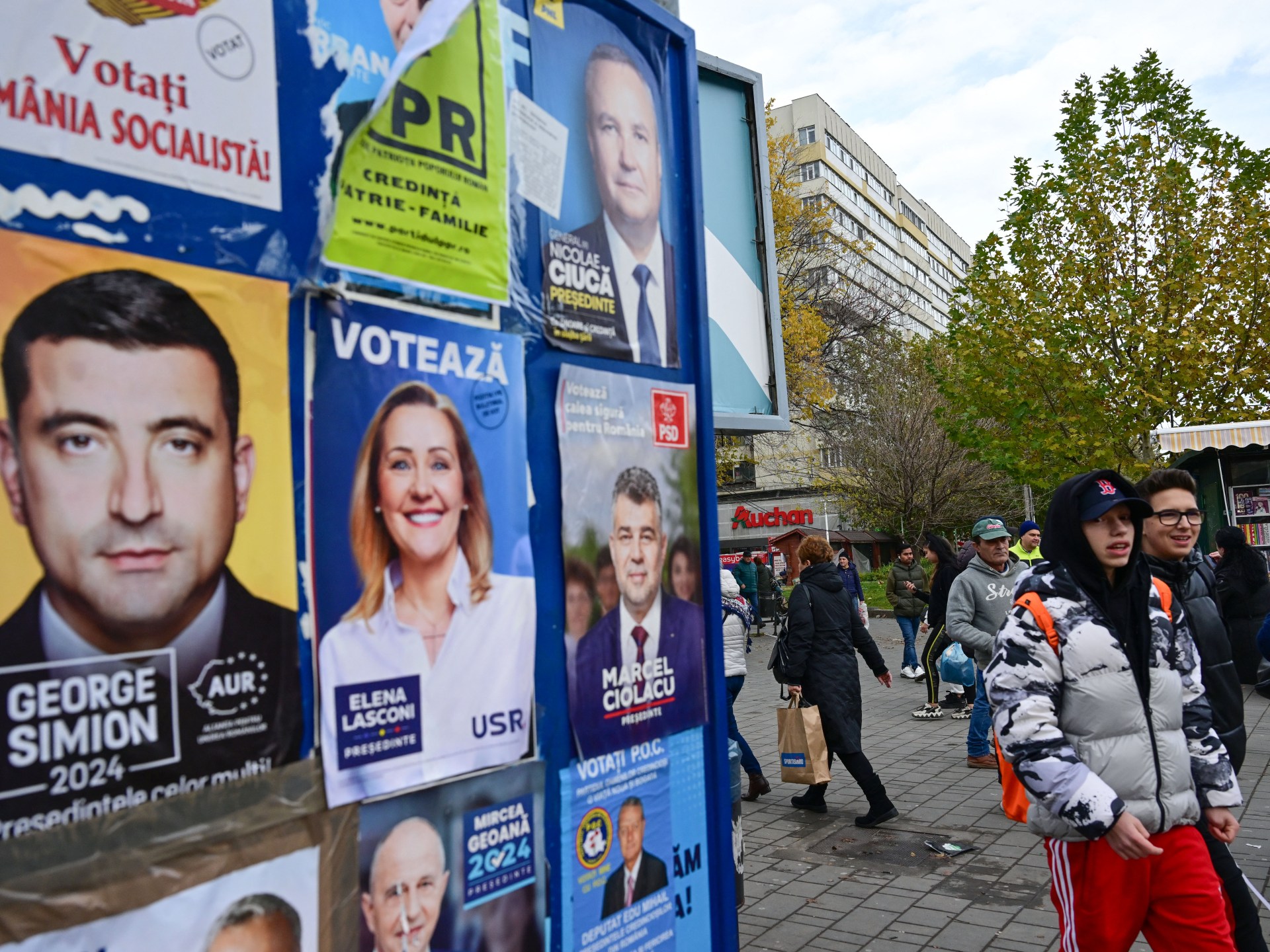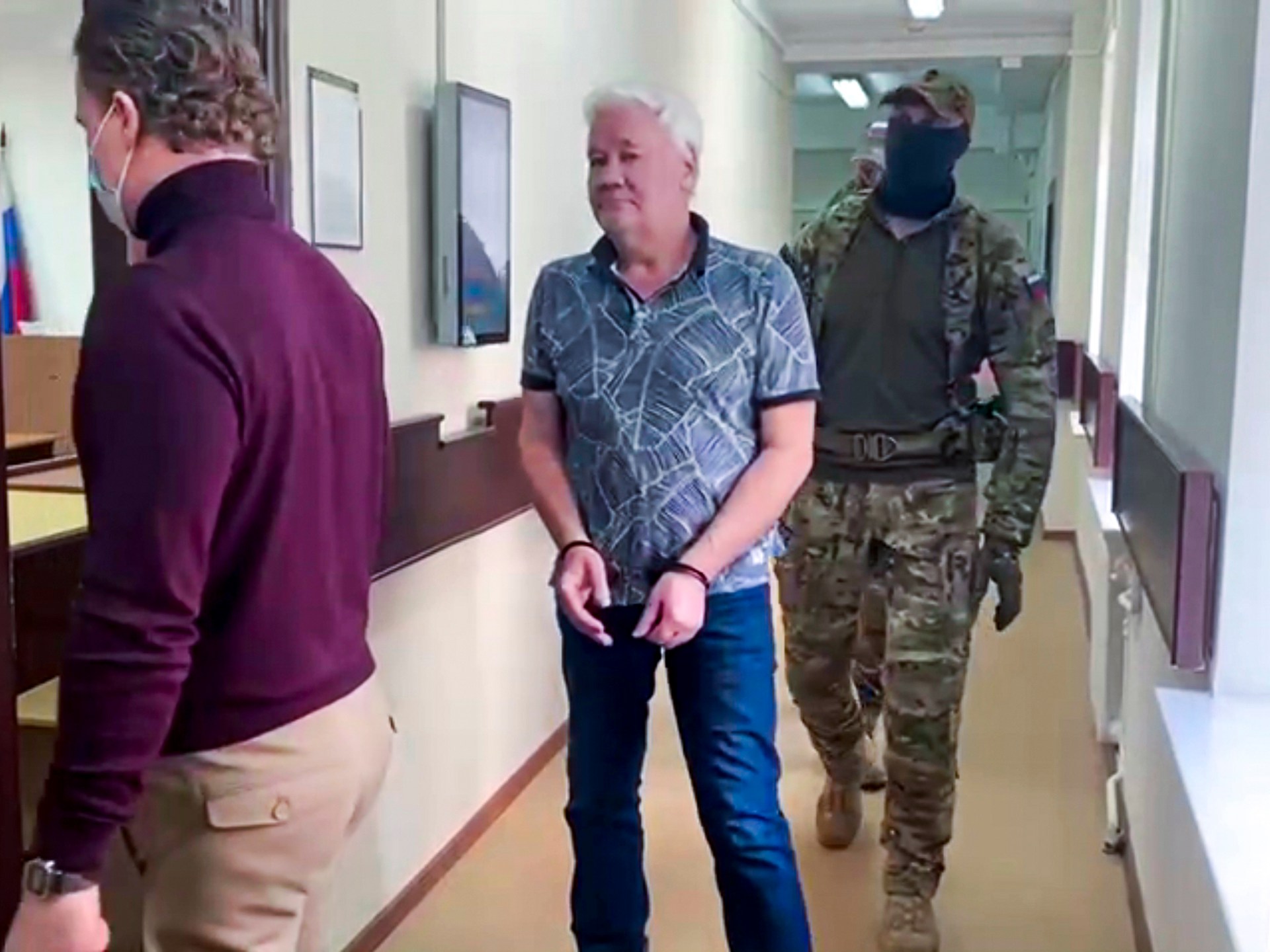

Polls have closed in the first round of Romania’s presidential elections, with exit polls suggesting that a run-off will be needed on December 8.
Prime Minister Marcel Ciolacu, of the Social Democratic Party, came out ahead in the exit poll, which was published as polls closed at 19:00 GMT on Sunday.
But it appears as though far-right leader George Simion, of the Alliance for the Union of Romanians (AUR), failed in his bid to reach the run-off. Instead, the centre-right politician Elena Lasconi, of the Save Romania Union party, came in second in the exit poll.
Ciolacu had 25 percent in the exit poll. Lasconi said that the results were “very tight” and called on supporters to wait until results were released on Monday to celebrate.
Voters were choosing between 13 candidates on Sunday for a replacement for the outgoing President Klaus Iohannis.
The top two move on to a second round of voting on December 8 if no single candidate gets more than 50 percent of the vote in the first round.
Social Democratic Prime Minister Marcel Ciolacu casts his ballot in the Romanian presidential election on November 24, 2024 [Daniel Mihailescu/AFP]
Ciolacu has been leading in the polls with 25 percent. Simion had support from around 15 to 19 percent of the country, according to opinion polls.
Romanian political analyst Cristian Pirvulescu said that the AUR party could get a boost in the parliamentary election slated for December 1 if Simion performs well in the presidential vote, and other right-leaning voters could coalesce around Simion if he reaches the run-off.
“Romanian democracy is in danger for the first time since the fall of communism in 1989,” Pirvulescu told the news agency AFP.
Ciolacu’s PSD has shaped the country’s politics since 1990, but this election comes at a tumultuous time in the European Union member state amid rising inflation and the ongoing war in neighbouring Ukraine.
Simion has been able to tap into an affordability crisis in the country. While inflation is trending downwards from a record 10 percent last year, the far-right candidate has tapped into voter frustrations about economic issues.
Presidential candidate and leader of the far-right Alliance for the Union of Romanians, George Simion, greets the press outside a polling station in Bucharest, Romania, November 24, 2024 [Andrei Pungovschi /AFP]
Inflation is expected to be 5.5 percent by the end of 2024.
Simion opposes sending military aid to Ukraine – a country with which Romania shares a 650-kilometre (400-mile) border.
Simion, who has repeatedly praised United States President-elect Donald Trump, has tapped into a hard right message that appears to be growing in popularity in both the US and Europe.
Borrowing from the Trump playbook, Simion has warned of possible electoral fraud, and has also opposed sending military aid to Ukraine.
Simion has also campaigned for unification with Moldova, which has renewed a five-year ban on him entering the country.
“We are at a point where Romania can easily divert or slip towards a populist regime because [voter] dissatisfaction is pretty large among a lot of people from all social strata,” Cristian Andrei, a political consultant, told The Associated Press news agency. “And the temptation for any regime, any leader, will be to go on a populist road.”
Related News

Russia sentences former US consulate worker to nearly five years in prison

‘Idea was to kill’: Bolivia’s ex-president says shots fired at his car

The view from Gaza: What the US decision not to punish Israel looks like


